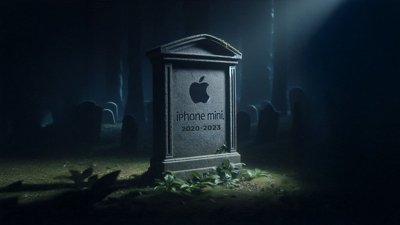Many are lauding Electronic Arts' decision to actively support Mac OS X games as a significant boost to Apple's software lineup. Some legacy Mac users, however, will be left in the dark.
For instance, each of the new Mac games announced thus far will be converted using TransGaming's Cider engine, which — unlike direct reprogramming efforts — wraps a layer around the game's original code. The interpreter translates all of the normally Windows-only system calls made by a game (including DirectX and Win32) to Mac calls with a minimal overhead.
Doing so not only cuts down on development time, the company says, but also guarantees equal support as multiplayer games, patches, and other features will always be shared between Mac and Windows versions. All of these have been chronic difficulties for games in the past, as developers had to convert code both to a new OS and a new processor architecture at the same time.
This may come at a high price for some users, however. TransGaming's technology normally only works with Intel-based Macs, leaving owners of older PowerPC systems without the ability to play any of the titles even if faster computers (such as late-model PowerMac G5s) would theoretically have the performance to run the games in a PowerPC-native form.
No plans are in the works to change Cider's dependence on Intel code, a representative from the company told AppleInsider.
The move bars all Macs made before 2006 from playing titles and also illustrates one of the side-effects of the transition to Intel processors. Apple itself has pledged to develop universal binaries compatible with both new and old systems but has never guaranteed similar protection from third-parties, which can use Xcode and other tools to write programs that run only on the Intel platform.
 Katie Marsal
Katie Marsal






-m.jpg)






 Christine McKee
Christine McKee
 Wesley Hilliard
Wesley Hilliard
 Thomas Sibilly
Thomas Sibilly
 Marko Zivkovic
Marko Zivkovic
 Andrew O'Hara
Andrew O'Hara
 Amber Neely
Amber Neely
 William Gallagher
William Gallagher









40 Comments
I hate EA games anyway. Stupid sports junk.
Many are lauding Electronic Arts' decision to actively support Mac OS X games as a significant boost to Apple's software lineup. Some legacy Mac users, however, will be left in the dark.
Presenting as part of the opening keynote address at Apple's annual developers conference on Monday, EA co-founder Bing Gordon announced his firm would soon begin releasing Mac games simultaneously alongside their Windows equivalents. But in the short time allotted to the executive, some of the underlying details and requirements of those games were not widely publicized.
For instance, each of the new Mac games announced thus far will be converted using TransGaming's Cider engine, which -- unlike direct reprogramming efforts -- wraps a layer around the game's original code. The interpreter translates all of the normally Windows-only system calls made by a game (including DirectX and Win32) to Mac calls with a minimal overhead.
Doing so not only cuts down on development time, the company says, but also guarantees equal support as multiplayer games, patches, and other features will always be shared between Mac and Windows versions. All of these have been chronic difficulties for games in the past, as developers had to convert code both to a new OS and a new processor architecture at the same time.
This may come at a high price for some users, however. TransGaming's technology normally only works with Intel-based Macs, leaving owners of older PowerPC systems without the ability to play any of the titles even if faster computers (such as late-model PowerMac G5s) would theoretically have the performance to run the games in a PowerPC-native form.
No plans are in the works to change Cider's dependence on Intel code, a representative from the company told AppleInsider.
The move bars all Macs made before 2006 from playing titles and also illustrates one of the side-effects of the transition to Intel processors. Apple itself has pledged to develop universal binaries compatible with both new and old systems but has never guaranteed similar protection from third-parties, which can use Xcode and other tools to write programs that run only on the Intel platform.
[ View this article at AppleInsider.com ]
Maybe it's just cynical of me, but I don't really consider wrapping a Windows game in Cider the same as "actively supporting" the Mac gaming community (such as it is). It's basically an emulator, Rosetta for games, with the obligatory performance hit that an emulator imparts. Blizzard actively supports Mac gaming and I will happily buy the true Mac-native Starcraft 2 when it arrives. Cider is a step up from using Bootcamp and XP/Vista, but not all that big of a step up.
Maybe it's just cynical of me, but I don't really consider wrapping a Windows game in Cider the same as "actively supporting" the Mac gaming community (such as it is). It's basically an emulator, Rosetta for games, with the obligatory performance hit that an emulator imparts. Blizzard actively supports Mac gaming and I will happily buy the true Mac-native Starcraft 2 when it arrives. Cider is a step up from using Bootcamp and XP/Vista, but not all that big of a step up.
Since Cider is based on Wine, and 'Wine Is Not an Emulator' (http://www.winehq.org/site/myths), it shouldn't be considered as 'Rosetta for Games'.
- and I think this is a pretty significant endorsement of Wine Technology
(even if Wine & Transgaming have actually gone their separate ways)
- and it should encourage more people to look at Wine or Codeweavers as well.
I don't think it's a big deal if the games don't support PPC. I would assume most hardcore gamers likely have new Macs anyway. Just because Apple has pledged to support legacy systems doesn't mean we can expect third party developers to.
If a user only has a PPC Mac then they can continue playing the games on whatever system their currently using Windows/PS3/Wii/etc
I don't think it's a big deal if the games don't support PPC.
I agree. I'm sorry for G5, G4 & G3 users, but would they really want to play NFS, BF2142 and C&C3 on such systems? I would imagine even a "native" port running dog slow. Intel Mac systems are the way of the future. The way of the future. The way of the future. The way of the future. The way of the future. The way of the future. The way of the future.
*covers mouth with hand*